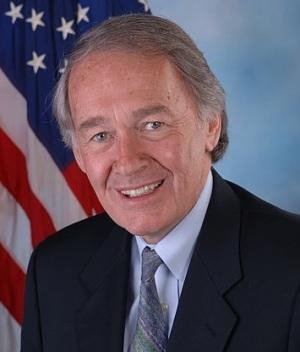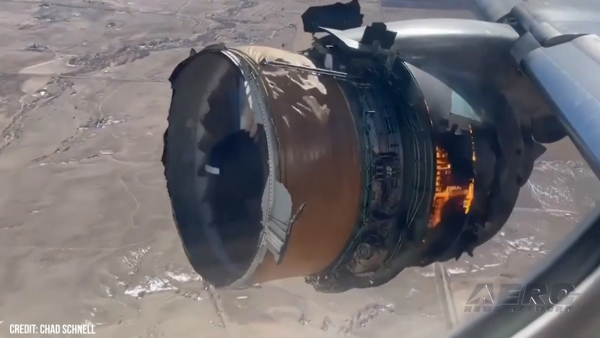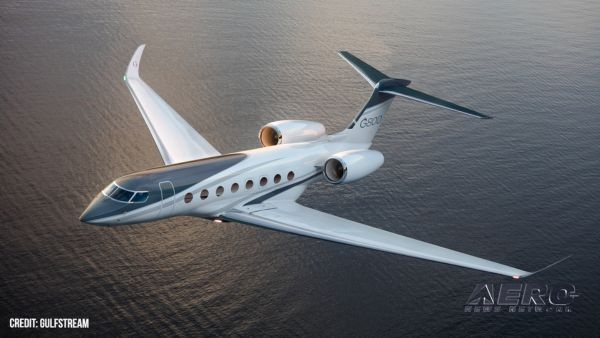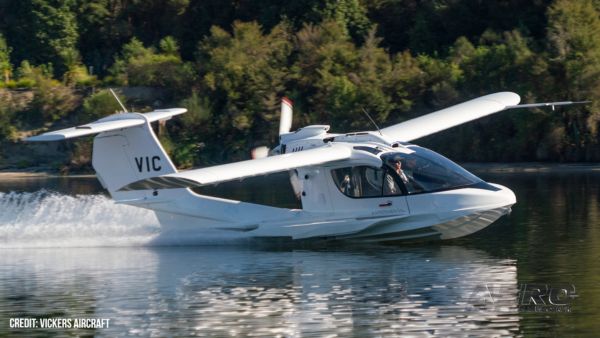Wed, Mar 22, 2017
Authors Say Bill Would Protect Citizens From Invasions Of Privacy By Government And Private Drones
Senator Edward J. Markey (D-MA) (pictured) and Rep. Peter Welch (D-VT) hae introduced bicameral legislation in the United States Congress to establish safeguards to protect the privacy of individuals from the expanded use of commercial and government drones. The Drone Aircraft Privacy and Transparency Act will ensure standards for informing the public about the location, timing and ownership of unmanned aerial vehicles.

The authors say the legislation also will require privacy protection provisions relating to data collection and minimization, disclosure, warrant requirements for law enforcement, and enforcement measures in the licensing and operation of drones. The FAA estimates that as many as 2,700,000 commercial unmanned aircraft systems will be sold each year in the United States by 2020. The lawmakers introduced similar legislation in the last Congress.
“Drones flying overhead could collect very sensitive and personally identifiable information about millions of Americans, but right now, we don’t have sufficient safeguards in place to protect our privacy,” said Senator Markey, a member of the Commerce, Science and Transportation Committee. “The Drone Aircraft Privacy and Transparency Act requires transparency in domestic drone use and adds privacy protections that ensure this technology cannot and will not be used to spy on Americans. I thank Rep. Welch for his partnership on this legislation that will help ensure that we’re not flying blind when it comes to drone privacy.”
“As the presence of drones in our airspace becomes more commonplace, Americans are rightly growing concerned about their privacy,” said Rep. Welch. “Drones are a valuable tool for commerce, law enforcement, and public safety as well as a fun hobby. Our statutes must be updated to reflect the emergence of this soon-to-be ubiquitous technology to ensure privacy and transparency in their operation and use.”
The Drone Aircraft Privacy and Transparency Act would:
- Prohibit the FAA from issuing drone licenses unless the license application includes a data collection statement that explains who will operate the drone, where the drone will be flown, what kind of data will be collected, how that data will be used, whether the information will be sold to third parties, and the period for which the information will be retained.
- Require law enforcement agencies and their contractors and subcontractors to include an additional data minimization statement that explains how they will minimize the collection and retention of data unrelated to the investigation of a crime.
- Require that any surveillance involving drones by law enforcement agencies will require a warrant or extreme exigent circumstances.
- Require the FAA to create a publicly available website that lists all approved licenses and includes the data collection and data minimization statements, any data security breaches suffered by a licensee, and the times and locations of drone flights.
(Source: Congressman Welch news release. Image from file)
More News
Also: New SAF, Korean Air Buys 103 Boeings, Maryland SP Helo Rescue, OK AWOS Update Gulfstream Aerospace Corporation announced its first customer delivery of the all-new Gulfstream>[...]
"This is just an absolute win win win. If there is a rejected takeoff we now have the confidence that the arrestor system will ensure passenger and crew safety." Source: FAA Admini>[...]
Low Approach An approach over an airport or runway following an instrument approach or a VFR approach including the go-around maneuver where the pilot intentionally does not make c>[...]
Aero Linx: Historic Aircraft Association (HAA) The Historic Aircraft Association (HAA) was founded in 1979 with the aim of furthering the safe flying of historic aircraft in the UK>[...]
While Flying About 1,500 Ft Above Ground Level, A Large Bird Struck The Right Side Of The Airplane Analysis: The pilot reported that while flying about 1,500 ft above ground level,>[...]
 Airborne 08.29.25: G800 Delivery, Alaska F-35 Crash, USCG-RCAF Medevac
Airborne 08.29.25: G800 Delivery, Alaska F-35 Crash, USCG-RCAF Medevac Aero-News: Quote of the Day (08.30.25)
Aero-News: Quote of the Day (08.30.25) ANN's Daily Aero-Term (08.30.25): Low Approach
ANN's Daily Aero-Term (08.30.25): Low Approach ANN's Daily Aero-Linx (08.30.25)
ANN's Daily Aero-Linx (08.30.25) NTSB Final Report: Excalibur Excalibur
NTSB Final Report: Excalibur Excalibur



